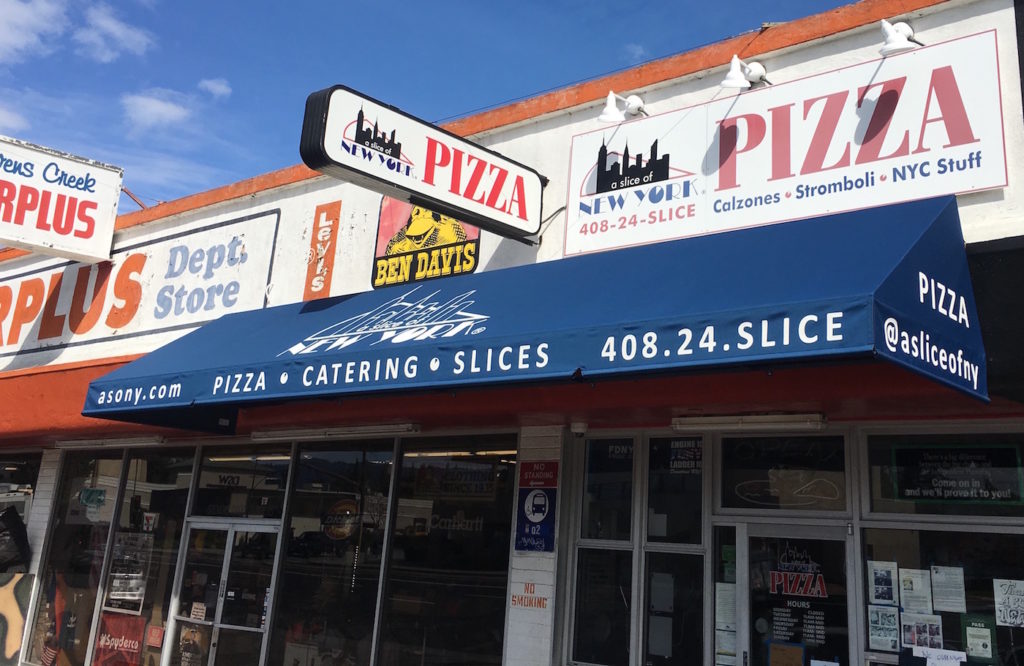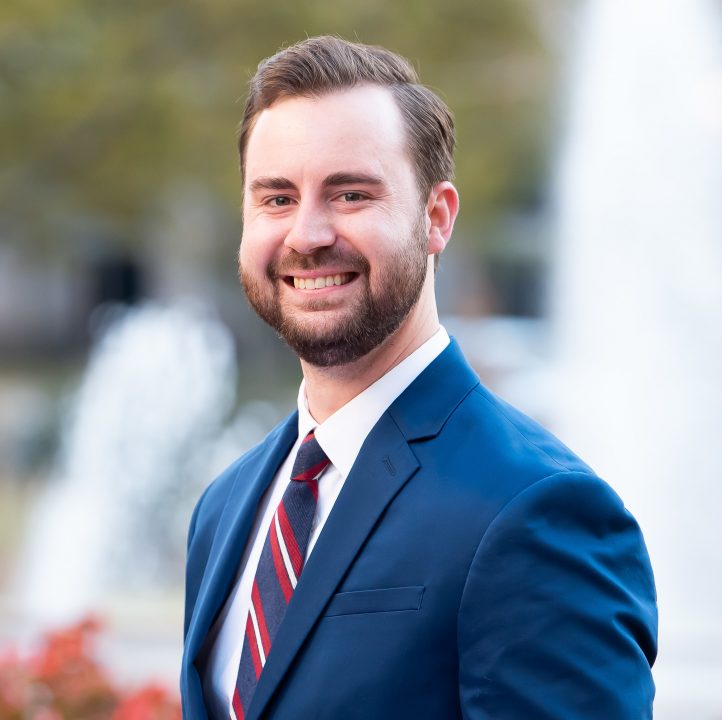How Blockbusting and Real Estate Profiteers Cash In on Racial Tension
By: By Stephen Zacks, Dwell

Excerpt: All in all, the profiteering habits of the real estate market underline a need to rethinking housing as a commodity. Chris Tittle, staff lawyer and director of land and housing justice at the Sustainable Economies Law Center, which provides technical support for communities organizing to assert greater control over their resources, advocates for cooperative ownership and social housing that would permanently take buildings out of the speculative marketplace and place it in the hands of local groups and those in need of shelter. "When we’re doing work, our primary analysis is that the underlying root cause of a lot of this is the financialization of housing and the commodification of housing," Tittle says. "Housing under capitalism is not designed to providing housing for people; it’s primarily designed to extract as much value as possible."
Read the full article here.
(Originally published August 13, 2020.)
Legal Cafe Teach-In: How to Pool Resources to Create a More Sustainable Economy

Our summer 2020 Law Center intern Sam Karlin led a teach-in exploring how community capital can be used to support local businesses, increase community wealth, and promote social and economic justice.
Read moreEscape From the Nuclear Family: Covid-19 Should Provoke a Re-Think of How We Live
By: Naomi Klein, The Intercept

Excerpt: ... I live in the San Francisco Bay Area, in Oakland, unceded Ohlone territories. We have the Sogorea Te’ Land Trust, which is an Ohlone land trust that’s rebuilding the land base for the Ohlone peoples and for indigenous peoples in the Bay Area. There’s resources like the Sustainable Economies Law Center, which is just an incredible resource for helping people think about how to live in intentional community. Everything from the mundane legal structure questions to what the daily practice of compassionate self-governance looks like.
Read the full article here.
(Originally published August 5, 2020.)
‘Radical Real Estate Law School’ is in session
By: Natalie Orenstein, The Oaklandside

Excerpt: The program is offered through the Sustainable Economies Law Center in downtown Oakland, one of the handful of organizations taking advantage of a little-known rule in California and a few other states allowing people to take the bar exam without first obtaining a traditional law school degree. Instead, apprentices study and work directly with practicing lawyers for four years, saving money and boosting their host organization’s workforce.
For Hernandez, becoming a lawyer through an unconventional method made sense. She’d come in direct contact with housing law herself, through unconventional living situations.
Five years ago, Hernandez’s family was evicted from a home they rented in Oakland’s Maxwell Park neighborhood. Unable to afford anything they found on Craigslist, Hernandez, her husband, and their four children piled into the car and went looking for buildings with “for rent” signs in the windows.
Read the full article here.
(Originally published July 30, 2020.)
A Quiet Workplace Revolution in the Shadow of Silicon Valley
By: Vanessa Bee, The New Republic

Excerpt: The location of the daycare may have had something to do with this sense of possibility: The Bay Area boasts one of the highest concentrations of worker co-ops in the United States. Though California has a relatively friendly regime of laws, advocacy groups have pushed for simplifying the formation process for pure worker co-ops and hybrids co-owned by consumers and workers. One recent effort culminated in the passage of Assembly Bill 816, a statute that eases fundraising and defines worker co-ops clearly, so the label isn’t claimed without the matching structures in place.
Municipalities in the Bay Area have also experimented with providing support. In 2012, after its mayor visited the town of Mondragon, Richmond piloted a one-year fund of $50,000 to make loans to worker co-ops. Three years later, Oakland passed a resolution [A note from SELC: click here to read our press release about the Oakland Resolution!] pledging to “provide tailored resources created by community organizations and make referrals to technical assistance providers” for potential worker co-ops. So far, however, one of the most concrete commitments has come from Berkeley, which pledged $100,000 to support worker co-ops. Meanwhile, San Francisco is partnering with the Bay Area–based nonprofit Project Equity to encourage private owners to transfer their small businesses to employees rather than close.
Read the full article here.
(Originally published June 3, 2020.)
East Oakland Grocery Cooperative, a homegrown market for and by Black and brown folks
By Cirrus Wood, Oaklandside

Excerpt: The East Oakland Grocery Cooperative(EOGC) is a Black and POC-led, community-developed initiative that aims to provide fresh, local, healthy and culturally relevant foods, as well as job opportunities, to East Oakland residents. The point is not only to diversify neighborhood food offerings, but also to localize and build economic resilience among the area’s Black and POC communities...
At present the seven members are engaged in a 12-week training program at Mandela Grocery Cooperative, which is serving in an advisory capacity, along with Repaired Nations, an organization focused on building wealth and resilience within Black communities.
Read the full article here.
(Originally published June 24, 2020.)
Can Ridesharing Cooperatives Disrupt Uber & Lyft?

Considering all the legal drama that is happening in California with Uber and Lyft around worker classification, here's a reminder of how things could be if those ridesharing giants were coops instead. "Instead of optimizing the online economy for growth and short-term profits for the few," the emerging Platform Cooperative movement is trying to build a more sustainable and equitable business model for the 21st century.
Read moreHistory of Mutual Aid Coops

Since the onset of COVID-19, the Sustainable Economies Law Center and other legal professionals have worked to develop guidance and resources relating to tax, governance, and other immediate needs of mutual aid groups as they provide local support within communities affected by the pandemic and its economic consequences.
On July 22nd, 2020, our summer intern Erika Sato hosted a teach-in on the history of Mutual Aid Coops.
Read more(Re)Structuring Your Arts Organization

We're in a unique situation where people are consuming and appreciating art more than ever as we shelter in place to keep our community safe. To honor our artistic comrades, we partnered with The Bridge Project for our June 30th Legal Cafe. Instead of serving all types of social enterprises like we usually do, we hosted this Legal Cafe specifically for artists!
Read moreSelf Care Only Exists With Collective Care

The Law Center will be closed for a period of Collective Rest from July 27-31, 2020.
Our communities are in an unprecedented situation and many activists and social movement organizations have been sprinting since March. If we do not acknowledge this, and particularly the impact that it has on our organizations and the people that power them, then we actively perpetuate a cycle of violence that keeps our communities tied to the extractive, white supremacist culture we are trying build beyond. Many of our community members were already depleted when this social movement and historic moment came about. Inspired by members of our community like Hasta Muerte Coffee, East Bay Meditation Center, Alchemy Collective Cafe, CompassPoint, and others, the Sustainable Economies Law Center is taking a week of collective rest starting July 27th. Our intention is that this week will give us a short time to pause, disconnect from the constant virtual meetings, and reflect on how we are each being impacted. Hopefully we can find joy in what’s available to each of us at this time, too.
Read moreMusings on Radical Real Estate - The Law Center Hosts First Community Discussion

It’s been a month since our radical real estate law school launched! We recently hosted a web discussion that focused on the central questions of this program - what IS radical real estate and how do we work towards it? The discussion included most of our team at the Sustainable Economies Law Center, members of the East Bay Permanent Real Estate Cooperative (EBPREC), Community Vision, along with special presentations from an attorney and a scholar.
Read moreCalifornia Employee Ownership Alliance Proposes $10M Recovery Package
By Karen Kahn, Fifty by Fifty

Excerpt: The Worker-Owned Recovery California (WORC) Coalition is advocating for California’s state legislature to include $10 million in the state budget to support education, technical assistance, and forgivable loans to businesses that transition to worker ownership...The state legislature will be voting on the budget on June 15. WORC is urging Californians to support the campaign and the budget request by contacting their legislators.
The WORC Coalition includes Sustainable Economies Law Center, U.S. Federation of Worker Cooperatives, Democracy at Work Institute, California Center for Cooperative Development, Project Equity, Lawyer’s Committee for Civil Rights of SF Bay Area, Certified Employee Owned, and the worker cooperative A Slice of New York.
Read the full article here.
(Originally published on June 11, 2020.)
We are in Solidarity with the Movement for Black Lives

We want to recognize the outrage and grief of this moment. It is justified. We feel it, too. Though we can’t find the perfect words to share at this moment, our hearts are heavy as we witness the terror of white supremacy and state violence that has characterized our nation from its founding to this very day. Our condolences go out to the loved ones of George Floyd, Ahmaud Arbery, Sean Reed, Tony McDade, Nina Pop, Breonna Taylor, and the many other Black and brown lives that have been taken by police, hate groups, and individuals in this country, with little to no accountability, no justice, and no systemic change.
Black lives matter.
We are proud of the people who are taking to the streets in the midst of a pandemic to demonstrate that we will not stand for this any longer. We believe that at the heart of these protests is an unwillingness to accept a system that treats Black and Brown people as disposable. We are with our communities who are rising up, speaking out, and committed to building a better future. Our vision and our commitment to building more just and resilient economic systems has not changed; it has been reaffirmed. Together, we can and must build systems that are rooted in equity, reparations, democracy, and love.
Read moreWhere next after Covid-19?A co-operative outlook in the USA
By Chad Small, CoopNews

Excerpt: Jay Cumberland, Equal Justice Works Fellow sponsored by the eBay Foundation and attorney with theSustainable Economies Law Center(SELC), says interest in co-ops grew prior to the pandemic. This was in response to concerns about business succession as a ‘silver tsunami’ small business owners near retirement. But this framing of co-op interest is limited because it primarily focuses on positive employee-owner relationships – while, in many ways, worker discontent during the pandemic highlights the pervasiveness of contentious labour-owner relations.
Read the full article here.
(Originally published May 28, 2020.)
"The Dirtiest Word" documentary, feat. the Law Center's Ricardo Nuñez
Check out the Law Center's Director of Economic Democracy, Ricardo S. Nuñez, in the documentary trailer for The Dirtiest Word (formerly "Socialism: An American Story")! He is quoted starting at the 1:53 mark, "More voice for the workers actually benefits the company."
Watch the trailer on Facebook or Vimeo.
Read more




